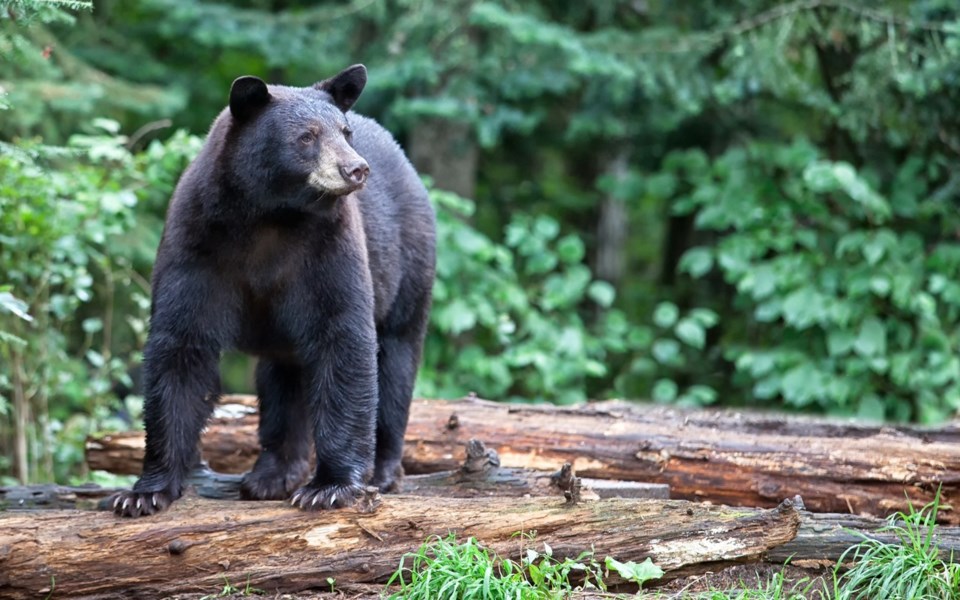Last week, the province announced that 20 new conservation officers will be posted this fall to B.C. communities with the highest need—and Whistler did not make the list.
"We recognize the need for additional conservation officers to help protect our natural resources and lessen human-wildlife conflicts. For too long, there has been a lack of frontline conservation officers, and communities have suffered the consequences," said George Heyman, Minister of Environment and Climate Change Strategy, in an April 26 release.
Upon completion of their training, several officers will fill existing positions in Quesnel, Terrace, Creston, Prince George, Merritt, Fort St. John and the Lower Mainland. New positions were also created for Grand Forks, Bella Coola, Port McNeil, Vernon, Mackenzie, Chetwynd, Haida Gwaii, Duncan, Chilliwack and Atlin, as well as two positions in the North Fraser zone, officers that will be able to assist in the Sea to Sky when needed.
The B.C. Conservation Officer Service (COS) considered "several factors" when determining where officers would be posted this fall, said environment ministry spokesperson David Carn, including call volume, zone coverage, and geographic location. Sgt. Simon Gravel with the COS noted there are several communities around B.C. that only have a single officer working at any given time, something the COS "was trying to eliminate."
There are currently four conservation officers covering the Sea to Sky—two based in Squamish and two in Whistler—along with two in North Vancouver that will also attend calls in the corridor if required.
Nicole Fitzgerald, with the Whistler Get Bear Smart Society, believes that, with more resources dedicated to the COS, more emphasis can be placed on education—and the public can play a key role in that effort.
"We need to make conservation officers' jobs easier," she said. "At the Sea to Sky bear management workshop last month, (deputy chief conservation officer) Chris Doyle spoke about how his office can't do this alone, they can't manage the problem alone. (There) is a need for the public to get more involved, and a great way to pitch in is by volunteering."
Bear Smart is asking for volunteers to help educate the public in a high-traffic area for bears, up until May 11. (The exact location is being withheld in order to prevent further human-wildlife conflict.). Those interested should contact Fitzgerald at Nicole@bearsmart.com.
Although conflict with wildlife is a seemingly regular occurrence in Whistler throughout bear season, the resort actually bucked a B.C.-wide increase in bear conflict last year. There were 222 bear-related calls to the COS in the Whistler area during bear season last year, down from 260 the year prior, and 278 the year before that. Conservation officers killed a total of three bears in Whistler as a result of conflict, below the 10 destroyed in 2016-17, and nine in 2015-16. That runs counter to the provincial trend last year, when the COS fielded 14,400 reports of conflict, and around 500 bears were destroyed. By August of last year, the province said that bear reports had skyrocketed, pacing at nearly double the rate from the same period in 2016.
Bear seen accessing non-natural food near Lost Lake
On Tuesday, May 1, the Resort Municipality of Whistler issued a warning of a bear, "indifferent to human presence," that was seen feeding on non-natural food left out in the Lost Lake area, across from Day Lot 4.
When contacted at press time, Gravel said he was not aware of the bear, but said "it's possible" it is the same animal that was spotted earlier this month attempting to access non-natural food in Alpine Meadows, which led to the COS posting warning signs around the neighbourhood.
"The bear was always in the same backyard, so we (installed) a sound device that is triggered by movement," Gravel explained, adding that there have been no further sightings reported in Alpine.
The COS has also heard several recent reports of bears walking alongside Highway 99, which prompted Gravel to remind the public "to not stop for wildlife on the highway.
"It's first of all a traffic-safety concern and it also contributes to the bear getting habituated to cars and to humans' presence," he explained.




